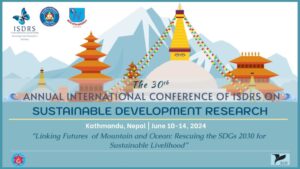Goals And Objectives
In addressing critical global issues such as climate change, biodiversity loss, resource scarcity, and social justice, it becomes increasingly important to acknowledge and draw inspiration from these time-tested indigenous practices. The urgency of addressing pressing global issues necessitates a shift in perspective, and indigenous practices offer a plethora of wisdom for such a transformation. Climate change, biodiversity loss, resource scarcity, and social justice are complex challenges demanding multifaceted solutions. Indigenous practices, having withstood the test of time, offer not only solutions but also inspiration for innovative approaches. Additionally, the emphasis on community resilience speaks to the ability of indigenous knowledge to not only address external threats but also to foster self-sufficiency and adaptability within communities. Embracing these practices provides an opportunity not just to react to global challenges but also to cultivate a sustainable way of life. Furthermore, this theme recognizes the potential for collaboration between indigenous communities and other stakeholders involved in sustainable development. The exploration of indigenous knowledge and practices aligns with the key Sustainable Development Goals (SDGs). It addresses interconnected challenges such as poverty, food security, health, climate resilience, and biodiversity conservation. The emphasis on partnerships and dialogue reflects a commitment to mutual respect and understanding among diverse stakeholders.
This track aims to explore the interconnectedness inherent in indigenous knowledge and practices, emphasizing their pivotal role in sustaining communities and the environment. Indigenous systems offer a unique perspective on sustainability, emerging from a profound understanding of the intricate relationship between humans and the environment. The track will also provide a platform to explore traditional ecological knowledge, cultural values, and practices that have been passed down and refined from generation to generation and stand as crucial pillars in the face of contemporary challenges.
Length And Content Of The Proposed Abstract To The Track
Each proposed abstract (in connection to one of the areas pointed out above) within 300 and 500 words (including everything)
- shall be best organized (without headlines) along usual structures (e.g., intro/method/findings or results/ discussion/conclusions)
- does not need to, but can include references
- shall provide in a final section
a. to which SDG(s) and SDG-target(s) their proposed abstract especially relate to (e.g. “SDG+Target: 14.1.”).
b. a brief indication of how the proposed contribution relates to the topic of the Conference (Linking Futures of Mountain and Ocean: Rescuing the SDGs 2030 for Sustainable Livelihood)
Abstracts that do not outline points 3.a.) AND 3.b.) might be considered less relevant in the Review.
Potential Publication Channels
With regard to potential publications, depending on the number and quality of contributions, diverse publication opportunities will be envisaged.
Submission
Keep up to date with developments of ISDRS 2024 Tracks here
“Linking Futures of Mountain and Ocean: Rescuing the SDGs 2030 for Sustainable Livelihood“
Who are we?
Kamal Adhikari, Resources Himalaya Foundation, Nepal.
adhikari.kamal@gmail.com
Rosemary Shrestha, International Maize and Wheat Improvement Center, Mexico.
rosemary.shrestha@gmail.com
